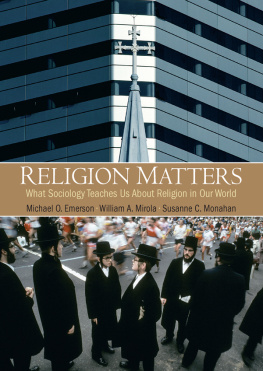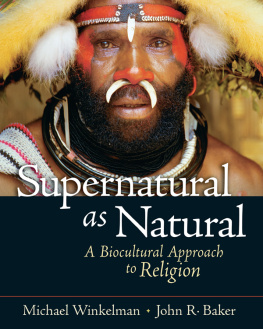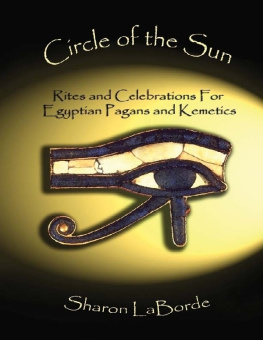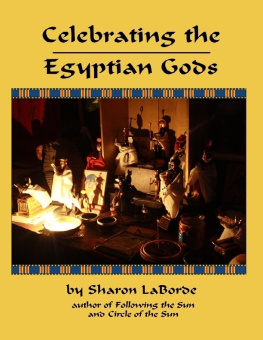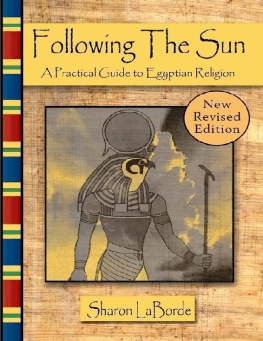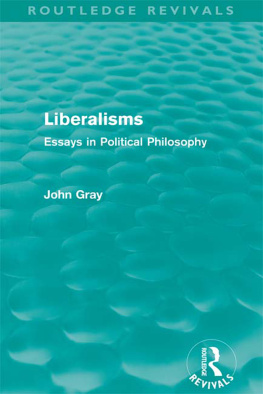Laborde - Liberalisms Religion
Here you can read online Laborde - Liberalisms Religion full text of the book (entire story) in english for free. Download pdf and epub, get meaning, cover and reviews about this ebook. publisher: Harvard Univ Pr, genre: Religion. Description of the work, (preface) as well as reviews are available. Best literature library LitArk.com created for fans of good reading and offers a wide selection of genres:
Romance novel
Science fiction
Adventure
Detective
Science
History
Home and family
Prose
Art
Politics
Computer
Non-fiction
Religion
Business
Children
Humor
Choose a favorite category and find really read worthwhile books. Enjoy immersion in the world of imagination, feel the emotions of the characters or learn something new for yourself, make an fascinating discovery.

Liberalisms Religion: summary, description and annotation
We offer to read an annotation, description, summary or preface (depends on what the author of the book "Liberalisms Religion" wrote himself). If you haven't found the necessary information about the book — write in the comments, we will try to find it.
Liberalisms Religion — read online for free the complete book (whole text) full work
Below is the text of the book, divided by pages. System saving the place of the last page read, allows you to conveniently read the book "Liberalisms Religion" online for free, without having to search again every time where you left off. Put a bookmark, and you can go to the page where you finished reading at any time.
Font size:
Interval:
Bookmark:
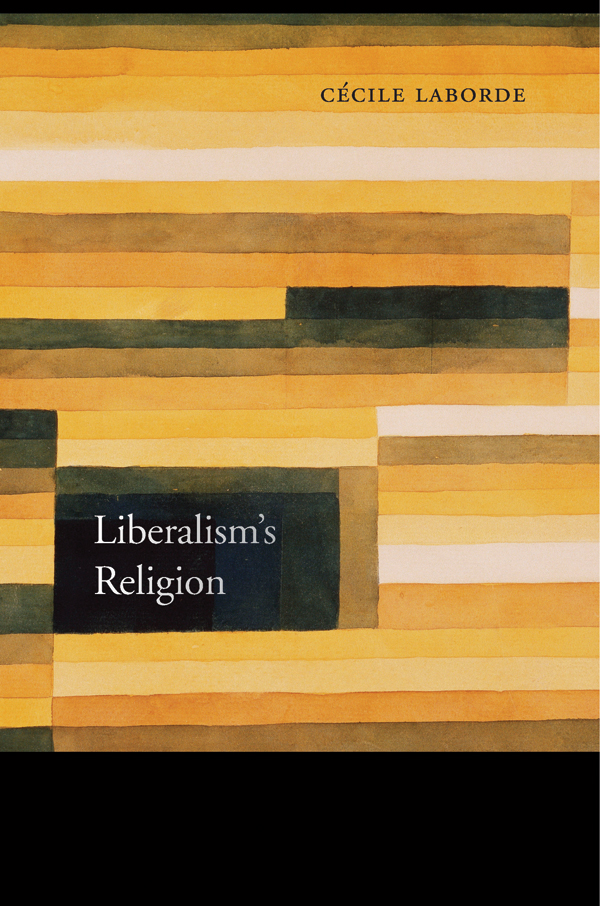
Liberalisms Religion

Ccile Laborde


Cambridge, Massachusetts
London, England
2017
Copyright 2017 by the President and Fellows of Harvard College
All rights reserved
Jacket design: Annamarie McMahon Why
Jacket art: Felsenkamer, 1929 (watercolour over pencil on paper laid down by the artist on board), Klee, Paul (1879-1940) / Private Collection / Photo Christies Images / Bridgeman Images 2017 Artists Rights Society (ARS), New York
978-0-674-97626-9 (alk. paper)
978-0-674-98157-7 (EPUB)
978-0-674-98158-4 (MOBI)
978-0-674-98156-0 (PDF)
The Library of Congress has cataloged the printed edition as follows:
Names: Laborde, Ccile, author.
Title: Liberalisms religion / Ccile Laborde.
Description: Cambridge, Massachusetts : Harvard University Press, 2017. | Includes bibliographical references and index.
Identifiers: LCCN 2017012577
Subjects: LCSH: Religion and state. | LiberalismReligious aspects.
Classification: LCC BL65.S8 L325 2017 | DDC 322/.1dc23 LC record available at https://lccn.loc.gov/2017012577
Can a liberal state establish a particular religion in its laws and institutions? Can state officials appeal to religious convictions in justifying laws? Can majority religious symbols be displayed in the public sphere? Can churches have male-only clergy? Can faith-based businesses deny services to LGBTQ citizens? Should conscientious objectors be exempted from the application of general laws? Should religious minorities be protected against discrimination on the same grounds as racial minorities?
In this book I aim to provide reasoned solutions to these, and similar, controversies. But I also take a step back, to reflect on more foundational issues about the place of religion in liberal political theory. The notion of religion is central to the historical elaboration of Western liberalism, from the European wars of religion onward. Yet, strangely, it has remained under-theorized by liberal political philosophers. LiberalismsReligion aims to fill this gap. I argue that controversies such as those referred to above are not best explicated and resolved in relation to a vague concept of religion. Rather, each relates to particular, discrete dimensions of (what we call) religion. When we think about the moral dilemmas that such controversies present us with, our focus should not be on the rights of religion as such. Instead, it should be on how liberal laws and institutions relate to the variegated manifestations of religious life that different controversies make salientreligion as cognitive statements of truth, identificatory symbols, comprehensive ways of life, modes of voluntary association, moral and ethical obligations, vulnerable collective identities, and so forth. Each facet of religion raises its own set of normative questions. The chief argument of this book is that we should disaggregate religion into a plurality of different interpretive dimensions.
Let me be clear about the scope of my argument. By suggesting that the category of religion can be dispensed with in political theory, I do not mean to deny that religion is a central, indeed indispensable, category of our ethical, spiritual, and social experience. Nor do I deny that the semantic category of religion is a useful heuristic device in a range of scholarly endeavors. What I do suggest, however, is that the category of religion is less than adequate as a politico-legal category. We can explicate the values implicit in freedom of religion, equality between religions, and neutrality of the state toward religionto mention just a few of the relevant liberal idealswithout direct recourse to the semantic category of religion at all. What we need, as political and legal theorists, is not a semantic or a descriptive notion of religion but, rather, an interpretive one: We need to articulate the multiple values that particular dimensions of religion realize. My theory of liberalisms religion, therefore, is interpretiveit eschews the term religion to focus on the values it realizes. And it is also disaggregativeit suggests that the values (and disvalues) of religion are plural and multidimensional.
The advantages of such a theory should be evident. It breaks with the long-standing tradition, in Western political theory at least, to think of religion as a discrete sphere of life deserving uniquely special politico-legal treatmentin the form of special protection (religious exemptions) and special containment (religious nonestablishment). My reworking of liberal theory implies that religion is not uniquely special: whatever treatment it receives from the law, it receives in virtue of features that it shares with nonreligious beliefs, conceptions, and identities. Disaggregating religion, then, allows us to treat religious and nonreligious individuals and groups on the same terms, as expressions of ethical and social pluralism.
Nor is this all. Disaggregating religion also allows us to dispense with the Western-, Christian-inflected construal of religion that liberal political theory relies on. Instead of assuming that separation between state and religion is a requirement of liberal legitimacy, for example, I shall identify the different dimensions of religion that directly engage the legitimacy of the political order. The upshot is that, when particular instances of religion do not exhibit those dimensions, then liberalism does not mandate Western-style strict separation. Liberalisms Religion, then, aims to reformulate liberalism to defend it against critics who denounce its ethnocentric, Christian understanding of what religion is. As a result, it offers a novel answer to the question of how universal theories of both secularism and religion can be; and of how to rethink equality in complex pluralistic societies.
A note on method. I think of political theory as an immanent and dialogical exercise. Much of my argument emerges as a product of fairly extensive and detailed engagement with existing literature, both in analytical philosophy and in (what I shall call) critical religion. Although I write in the analytical, normative tradition of political theory, I share with Continental-influenced, poststructuralist critics a deep-seated interest in the opacity and ambiguity of language. One of the paradoxes I explore is that, for all its commitments to clarity and precision, Anglo-American analytical political philosophy has relied on a strikingly vague understanding of religionan imprecision carried over to the loose analogue of conception of the good popularized by John Rawls. By clarifying some of the presuppositions of liberal philosophers use of such terms, I aim to provide a finer-grained conceptual account of one of the key, indeed foundational, notions of liberal political philosophy. The account I provide, importantly, is not idiosyncratic. It is one of the aims of my work to demonstrate that something like the interpretive, disaggregative approach is discernible, in embryonic form, in existing liberal theories. Likewise, I try to show that critics of liberalism implicitly rely, for the plausibility of their critique, on those normative liberal criteria that they otherwise eschew. In sum, my reworking of liberal theory illuminates the deeper common ground there can be, between different philosophical traditions, over liberalisms religion.
Font size:
Interval:
Bookmark:
Similar books «Liberalisms Religion»
Look at similar books to Liberalisms Religion. We have selected literature similar in name and meaning in the hope of providing readers with more options to find new, interesting, not yet read works.
Discussion, reviews of the book Liberalisms Religion and just readers' own opinions. Leave your comments, write what you think about the work, its meaning or the main characters. Specify what exactly you liked and what you didn't like, and why you think so.

